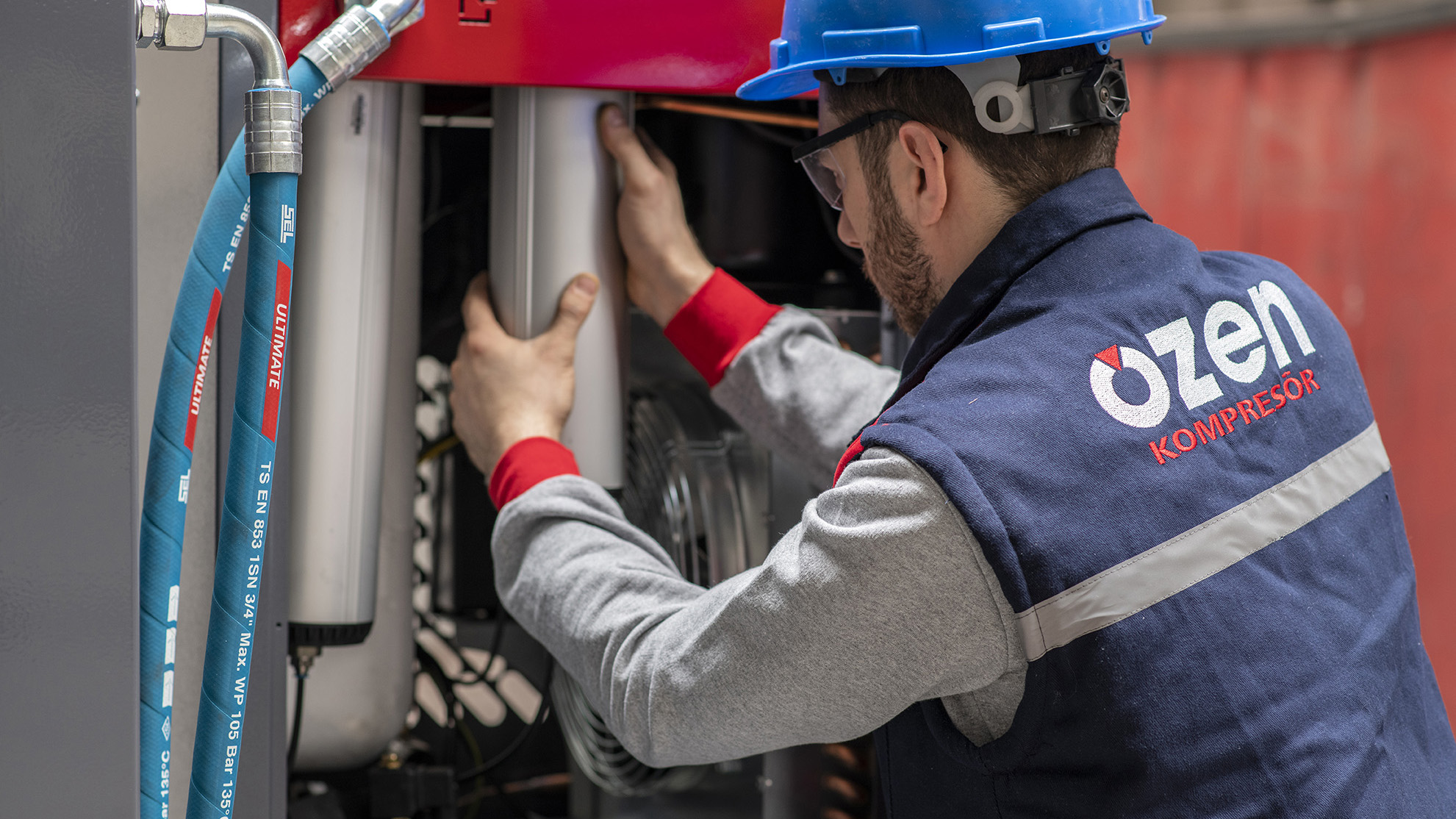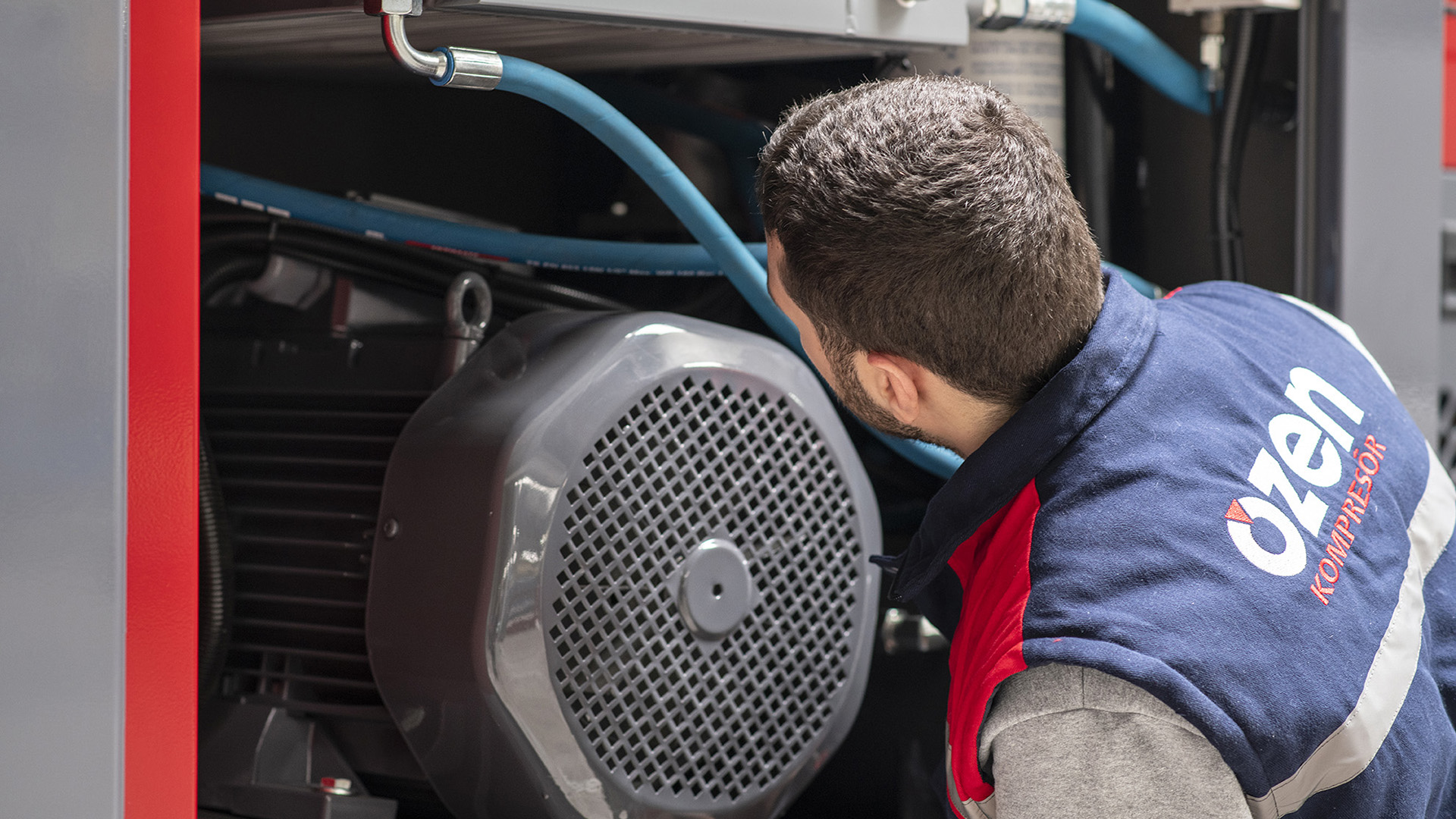Is Your Compressed Air System Ready For Winter?
16 December 2022, Friday
The weather is getting colder, days are getting shorter, and the winter is coming soon. Is your compressed air system ready for winter? It is important to prepare your compressed air system for winter during seasonal changes, except in winter months. Certain checks and maintenances are required to prepare the compressed air system for winter.

How Should the Winter Maintenance be for Compressed Air System?
Let us tell you in detail: what is winter maintenance for compressed air systems, how to do it, what steps you need to pay attention to...
Winter maintenance aims to ensure that your compressed air system operates in a stable, that is, normal way, against the condensation that will occur in the environment with the cooling of the air as well as the drops in the air temperature to freezing level. The only way to ensure this is to perform winter maintenance of the compressed air system. Let us take a look at the stages of this maintenance.
Check Compressor Filters
You should start with compressor filters when performing winter maintenance on the compressed air system. You should check the compressor filters and observe whether there are any problems. You should replace defective compressor filters with new ones.
First, you should check the compressor air filter. With more pollen presence in the summer months, the filters of the compressed air systems that work too much are filled with these pollens and dust in a very short time. Your compressor will not work properly in winter months since the air filter is clogged. At the same time, this dust and pollen can get into the compressor. Therefore, it will be possible for you to use your compressor with full capacity during winter months.
Another compressor filter you should check is the oil-retaining filter. Oil-retaining filter ensures that the oil mixing into the air system is trapped. If the oil filters you have used throughout summer months are full, you oil filter will excessively clog in the winter and will not fully function. Therefore, you should check your oil filter before winter. Oil is another component which is affected from extreme cold. When the oil thickens under freezing temperatures, the machine may stop proper lubrication, and this may negatively affect the life of the screw block and the system as a whole.
Lastly, you should check the water-retaining filter among the compressor filters. Since the environment in which the compressors operate is humid especially during summer months, this humidity enters the compressor with the air taken from the atmosphere and the water-retaining filters generally complete a large part of their life during summer months. In order to improve the air quality of your compressor, you should check the compressor's water retaining (water separator) filter after the summer months and replace it if it has completed its life.

You Can Use the Heat Recovery System
The compressor system compresses the air it takes from the atmosphere and exhausts it to outside. It is precisely during this compression that heat emerges as a result of energy. 90 percent of the heat generated by recovery systems during the operation of the compressed air system can be recovered and used for heating the environment. By integrating the equipment with energy recovery feature into air compressors, you can save plenty of energy and take the savings, which is the goal of winter maintenance, one step further.
Always Check for Leakages
It is very important to check for leakages. It is very important to check for the leakages integrated in the compressor's own structure during all seasons. However, you should check the pipes seasonally. Pipes expand or contract seasonally. In this sense, breaks and cracks may occur in the structure of pipes. Also, there may be openings in connection points of the pipes in seasonal transitions. Leakage of compressors from connection points is a very common problem. In such cases, you should contact the authorized service and eliminate the leakage.
Check the Compressor Oil
The elements inside the compressor are in constant motion and come into contact with each other in line with these movements. In this contact, lubrication is applied to prevent abrasions and to ensure healthy operation of the compressor. However, this oil is heated by the heat generated by the compressor during operation. Oils lose their properties after a certain temperature. During the summer months, the compressor oil gets hotter than normal with both the heat of the air and the heat of the compressor. The oil may lose its properties in this context too. Therefore, you should check the oil when summer months end and winter months begin. You should replace the oil if the oil has lost its properties, is more solid than normal and there are sediments in it.
You Should Check the Drain Systems
Drain systems are among the elements that are neglected in the pressure system; however, these are the most important ones. Drain system ensures that the substances accumulated as waste in the compressor are evacuated from the compressor without the need for a manual process. However, a malfunction or blockage in these systems will directly threaten the health of the compressor and reduce the air quality of the compressor. You should consider the drain holes and the drain pipe when checking the drain systems. You can operate the compressor to check whether it is working properly. If you think there is a problem here, you can request support from the compressor service. Testing and cleaning of the drain system is a simple process, but it is of critical importance.
